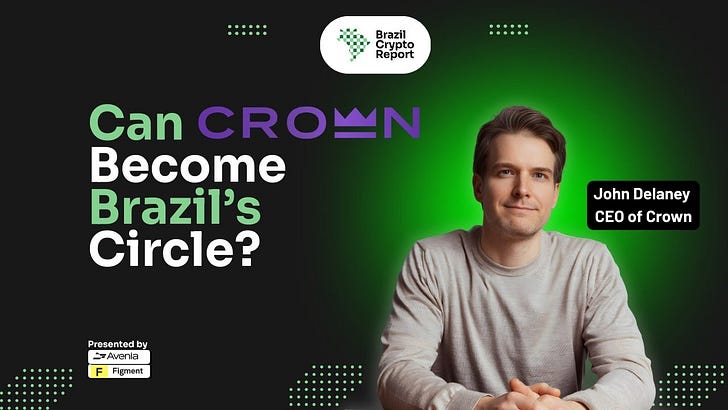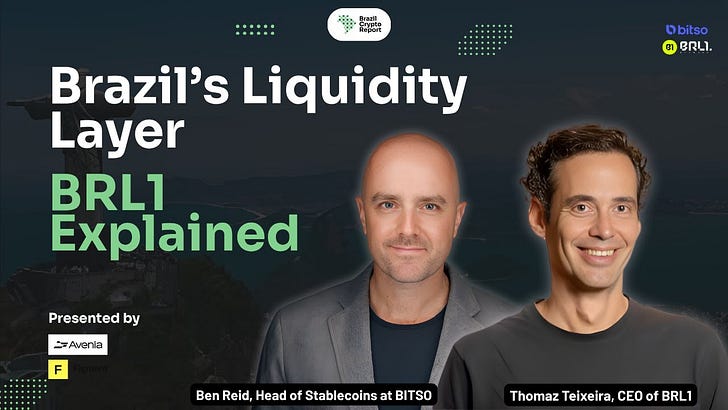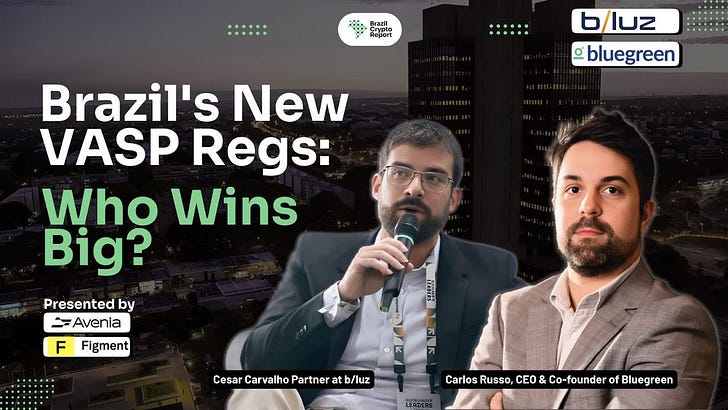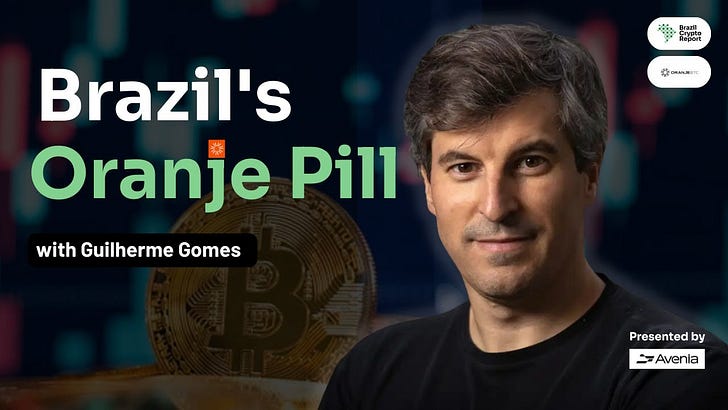🎧 Listen: Spotify | Apple Podcasts | Anchor | Amazon | Google Podcasts | YouTube
Olá pessoal!
Today’s episode is a panel discussion with crypto educator Rafael Castaneda and Leandro Pereira Sciammarella, who is digital assets lead at Nuclea and the author of the excellent Drex for Gringos series.
Followers of BCR know that the Central Bank of Brazil is building an ambitious CBDC/smart contract project, known as Drex, that looks to dramatically reshape the country’s financial system.
This conversation was recorded onsite at Web Summit Rio back in April. After our live panel concluded, we learned that the Drex team had hit an impasse in its attempt to find adequate privacy solution that is both scalable and compliant with Brazil’s data protection law.
I wasn’t going to publish this episode because the content is slightly out of date. However, many of the insights that Leandro and Casta share are still relevant, and both of them do a great job articulating the potential of the Drex project and the challenges it faces.
There also just isn’t that much content about Drex in English, so hopefully this episode can be a valuable contribution to that library.
The key topics covered include:
Drex is intended to be hybrid central bank digital currency and smart contract platform that enables the tokenizen of assets like government bonds. It seeks to do this on a permissioned, Ethereum Virtual Machine-compatible blockchain built using Hyperledger Besu.
It combines aspects of both "retail" and "wholesale" CBDC models - allowing tokenized Brazilian real to be used by consumers and for institutional settlement.
Privacy and scalability remain major hurdles, with ongoing tests of potential solutions developed by Parfin and EY. Ensuring interoperability across systems is also a challenge (as it is everywhere else in Web3).
Drex projects to bring transparency and access benefits, but its impact on banks' business models is an open question.
While promising, Drex is still in its infancy. There is a long way to go before its proposed benefits can be realized.
I enjoyed this conversation because both Leandro and Casta dive into the technological nitty-gritty while keeping an eye on the bigger picture implications for monetary policy, institutions, and national sovereignty.
A key focus is the project's embrace of public blockchain infrastructure like Ethereum, which raises questions around regulation, privacy, and control. As Casta notes, crypto was designed to resist regulation - so grafting it onto a central bank digital currency is uncharted territory fraught with technical and political minefields to navigate.
Leandro provides a ground-level view of the scalability and interoperability obstacles developers are grappling with. Despite these hurdles, he’s optimistic that rising privacy tech like zero-knowledge proofs can bridge permissioned and permissionless systems.
You can connect with Leandro on Linkedin and Casta on X/Twitter. I enjoyed this conversation with both of them and I hope you do as well.
Also big shout out to Transfero Group for hosting this panel on their stage at Web Summit Rio.
Have a great weekend everyone,
-AWS
💡Quick public service announcement: I keep all 🇧🇷BCR content free and accessible to promote Brazil’s crypto ecosystem as widely as possible, but please hit the free subscribe button below if enjoy this content. If you’re already subscribed, there’s an “upgrade to paid” enabled if you wish to support this platform👇
Connect with 🇧🇷Brazil Crypto Report across the web: Twitter | Linkedin | YouTube | Instagram | Spotify | Apple Podcasts | Substack











